- Home
- Stephanie Bond
Two Guys Detective Agency (humorous mystery series--book 1)
Two Guys Detective Agency (humorous mystery series--book 1) Read online
Table of Contents
Title Page
Chapter One
Chapter Two
Chapter Three
Chapter Four
Chapter Five
Chapter Six
Chapter Seven
Chapter Eight
Chapter Nine
Chapter Ten
Chapter Eleven
Chapter Twelve
Chapter Thirteen
Chapter Fourteen
Chapter Fifteen
Chapter Sixteen
Chapter Seventeen
Chapter Eighteen
Chapter Nineteen
Chapter Twenty
Chapter Twenty-One
Chapter Twenty-Two
Chapter Twenty-Three
Chapter Twenty-Four
Chapter Twenty-Five
Chapter Twenty-Six
Chapter Twenty-Seven
Chapter Twenty-Eight
Chapter Twenty-Nine
A note from the author
Other works by Stephanie Bond
About the Author
Copyright information
TWO GUYS DETECTIVE AGENCY
By
Stephanie Bond
Even Victoria can’t keep a secret from us...
TWO GUYS DETECTIVE AGENCY
Chapter One
LINDA GUY SMITH carefully lifted her gun to take deadly aim at the intruder. With her heart pounding, she squared his torso in her sites and held her breath as she slowly squeezed the trigger.
The squirrel seemed more startled than injured as the stream of water toppled him from the bird feeder to the ground, but the effect was the same. Duly warned, he scampered away toward the Logans’ house next door. Linda blew down the barrel of her plastic water pistol with the satisfaction of an expert marksman, but she knew her victory was short-lived. After the creature sampled the discount birdseed in Mrs. Logan’s feeder that was devoid of delectable black sunflower seeds, he would be back.
“But I’ll be ready for you, you little thief.” She set her weapon on the open window sill and turned back to her next most pressing matter—preparing school lunches and breakfast among the towering clutter that was her kitchen.
She could no longer remember when she and Sullivan had started the renovations. It seemed as if the cabinet doors had always been off, the counters always covered with plastic, the floor always tiled with uneven sheets of plywood. Linda sighed as she turned Very Veggie sausage patties in a nonstick skillet crowded with scrambled eggs. From the looks of their negative bank balance this month, they wouldn’t be moving forward with the repairs anytime soon. Her stomach rolled with an unease that had nothing to do with the peculiar smell of the breakfast “meat.”
The tap tap tap of toenails sounded on the floor. Max was a retired (and tired) police bloodhound with boundless patience, as evidenced by the sparkling pink tiara he wore.
“You’re going to get teased by the other neighborhood dogs,” she offered.
He ignored her jab, stopping to stare up at the empty birdfeeder.
“You missed my laser sniper shot at the enemy. But I don’t think we’ve seen the last of him.”
Max whined, then walked over and dropped his dead weight to lie on her feet.
“You are going on a diet.”
He rolled his big brown eyes to look up at her.
“Okay, we are going on a diet,” she agreed, trying not to think about the boxes of dark chocolate-covered cherries in the freezer—third prize in a local chocolatier’s slogan contest. (Bon bons fix boo-boos.) Freezing them had been her way of rationing to herself the candy that no one else in the house liked…it took a long honking time to eat a frozen chunk of chocolate. But just yesterday, she had discovered she could thaw an entire box in the microwave in about thirty seconds.
“I should join the women’s walking group,” she murmured, although the thought of race-walking through the neighborhood with that color-coordinated herd struck a chord of rebellion in her. That isn’t me.
Oh, yes, it is, her subconscious whispered. Face it, Linda—you’re regular.
“Mom!” her nine-year-old son Jarrod shouted from his room down the hall, accompanied by thumping and slamming. “I can’t find my UK cap!”
“Check the hall closet,” she called without looking up.
She studiously turned the veggie sausage patties, as if to prove she was exactly where she should be, doing exactly what she should be doing. Being a mother and a wife in a perfectly nice little neighborhood in an older section of Lexington, Kentucky. So she and Sullivan struggled financially—didn’t everyone? So she didn’t feel fulfilled every moment of every day—who did?
Even twenty-nine-year-old women who had chosen a path opposite hers—an education and a career—had occasional pangs for the road not taken…didn’t they?
“Mom!” her five-year-old daughter Maggie shouted from her room down the hall. “Where’s my pink tiara?”
Linda exchanged a glance with the bejeweled dog. “Maggie, call Max and he’ll help you find it.”
“Come, Max!”
The dog rolled off her feet and trotted away, tiara bouncing. Linda turned to make peanut butter and jelly sandwiches laid out in assembly-line fashion—two for Jarrod, one for Maggie, grape jelly for him, strawberry for her. Baby carrots in baggies. Juice boxes. Hand wipes.
“Mom!” Jarrod yelled. “Where’s my UK jacket?”
She closed her eyes and counted to three. “It’s probably with your cap in the closet, sweetie.”
A minute later, he bounded into the kitchen wearing the blue and white jacket and hat bearing the University of Kentucky insignia, his overgrown feet landing hard. She turned and her indefinable frustration dissolved at the sight of him—he was all boy, his fair father made over, but with her green eyes and her affinity for puzzles and number games. He came over to the stove, suffered a kiss, and held out the comics section.
“It says there are six things different between these two pictures, but I can only find four.”
“Which four?”
He pointed them out as he recited them. She glanced at the pictures and rattled off the other two.
He frowned, hating to be bested.
“You give up too soon,” she chided, then handed him a loaded plate and removed his cap to hang it on the back of his chair. “Maggie! Time for breakfast—you’re going to be late for the bus.”
“She’s primping,” Jarrod muttered. “What else is new?”
Maggie appeared, with Max dutifully following behind. Linda blinked. If her son was a mixture of her and Sullivan, Maggie was a puzzling little alien of extreme girliness who tested Linda’s parenting skills on a daily basis. This morning in addition to the glittery tiara, her dark-haired little beauty sported black and white polka dot leggings, a yellow and orange flowered shirt, and a pink netting tutu around her chubby waist. But her mismatched outfit paled in comparison to the bright red lipstick that circled her mouth like clown paint.
Jarrod guffawed, but Maggie was unfazed as she climbed into a chair at the table.
“I look pretty,” she said defiantly.
“That’s quite an outfit,” Linda agreed as she set a plate of food in front of her youngest. She’d committed to letting the budding fashion plate dress herself—the alternative left them both exhausted and teary.
Maggie made a face. “I don’t want sausage. It’ll give me cellulite.” Linda was appalled until her daughter squinted and asked, “What’s cellulite?”
“Nothing you have to worry about,” Linda said pointedly. “Eat.”
“It looks green,” Maggie whined, prodding a patty with her fork.
“It’s made without meat,” Linda said. “It’s good for you.”
“You have to eat it,” Jarrod said, shoveling in his food as if it were his last meal. “Mom won a year’s supply.”
For answering a trivia question in a call-in radio contest. Easy stuff.
“Where did you hear about cellulite?” she asked Maggie.
“On that dumb show Beauty Pageant Diaries,” Jarrod offered. He drained his milk glass in one long guzzle, then wiped his mouth with his sleeve. “She watches it at the Logans’ house.”
“Use your napkin, please. And no more play dates at the Loganses.” She lifted the corner of her apron to wipe off Maggie’s lipstick under protest. “And stay out of my makeup kit.”
Maggie pouted. “But Aunt Octavia sent it for your birthday and you never use it.”
Linda caught sight of her reflection in a cracked mirror hanging over a bench piled high with power tools. Her blond hair was lank and listless, her complexion pale. The gray sweatshirt and faded jeans didn’t do much for her, either. Maggie was right—she could use a little sprucing up. Why had she resisted using the luxurious gift her sister had sent? Because it represented everything she wasn’t, and seemed to carry with it Octavia’s ringing disapproval of her suburban-stay-at-home-mom lifestyle?
And stirred her own feelings of unrest?
Jarrod carried his empty plate to the sink. “Is the kitchen ever going to be finished?”
“Dad is doing the best he can,” Linda said, although she was starting to wonder the same thing.
“Where is Daddy?” Maggie asked, still moving her food around.
“Yeah,” Jarrod grumbled. “He was supposed to show me how to tie a knot for Scouts.”
“He went into the office early. He’s working on a big case. I can help you with the knot.”
“I want Dad to help me,” he said stubbornly. “I wish he’d go back to being a cop. That was cool.”
A twinge barbed through her chest, partly to hear the disappointment in her son’s voice, and partly because she herself missed Sullivan’s former career—the regular paycheck most of all. But that was selfish of her. And now that he had almost a year under his belt at his own investigative agency, business would hopefully begin to pick up. “Being a P.I. is cool,” she said in his defense.
“He works in a strip mall,” Jarrod shot back.
“But there’s a Waffle House next door,” Maggie piped up. “That’s really cool.” She frowned down at the green sausage. “I wish I had a waffle right now.”
“Eat,” Linda said. “Mrs. Boyd will be here in a few minutes to walk you to the bus stop.”
“I don’t like Mrs. Boyd,” Maggie said with her mouth full. “She says bad things about our house.”
“Well, it’s true our house doesn’t look so great right now, but Daddy will work on it again as soon as he solves his big case.”
Jarrod rolled his eyes. Linda felt obligated to give him a stern look even though she understood his sentiments.
The doorbell rang.
“Go get your book bags,” she said needlessly as the kids went scrambling. She frowned suspiciously at Maggie’s plate that was not only suddenly empty, but looked as if it had been licked clean. She leaned down to find Max lying under the table, staring up with innocent eyes, oblivious to the piece of scrambled egg on his muzzle that gave him away.
Linda sighed and turned to the counter to hurriedly stuff the lunch bags. She jogged to the tiny foyer, also cramped with displaced furniture and supplies from the ongoing construction, then pasted on a smile and swung open the door to greet her neighbor. “Good morning, Nan.”
Nan Boyd was squeezed into a green workout suit in anticipation of the mid-morning neighborhood walk. Her face was fully made up, down to metallic eye shadow.
“Good morning,” the chunky woman said, craning to see inside the house. “Oh, my, Linda, you’re a saint to put up with these renovations for so long. If it were me, I’d have to put my foot down.”
Linda gritted her teeth in the early spring chill. “Yes, well, Sullivan is really busy right now, but we’ll get back to them soon.”
“I hope so…for your sake, of course.”
She turned her head. “Jarrod! Maggie!”
At the curb, next to where a clump of kids waited to be escorted to the bus stop, a brown delivery truck pulled up. The driver Eddie jumped down from his seat.
“Got another one for you, Mrs. Smith!”
“What is it, Eddie?”
He grinned. “A case of Kleenex.”
Jarrod appeared at the door. “How did you win a bunch of Kleenex?”
She tweaked his ear and handed him his lunch bag. “By writing a greeting card verse to make people cry.”
He shook his head and bounded down the steps, past the age of public kisses.
“Bye! I love you!” she said anyway.
“Goodbye, Mommy,” Maggie said, lifting her cherubic face for a kiss.
Linda gave her a noisy sendoff, her heart squeezing. “Goodbye, sweetie. I love you.”
Maggie took her lunch and skipped down the steps. Mrs. Boyd frowned after her, but was thwarted from making a comment about the bizarre outfit when she had to move to allow the driver to pass with the enormous box.
Linda waved and smiled. “Thank you, Nan.”
Nan contorted to get in one last comment. “You should come walking with the other mothers sometime, Linda.”
An invitation, or a threat? “I will,” she promised, then turned away to hold the door for Eddie. Inside, she pushed and stacked items to clear a space for the prize.
“You always have interesting deliveries,” Eddie said after he set down the box.
She laughed. “Surely you have something more interesting on your truck than a pallet of Kleenex.”
“You’d think so, but no. What are you going to do with all that tissue?”
She shrugged. “Maybe I’ll make paper carnations.”
He grinned and extended a wireless device for her to sign.
With a stylus she wrote ‘Linda Guy Smith.’ She’d kept her maiden name as her middle name, a sore spot with Sullivan at the time—he was so traditional. She rarely used it, but was oddly compelled to write out her full name today.
The delivery was, after all, something she’d earned all on her own.
She walked Eddie to the door, glanced down the sidewalk for one last look at her kids as they moved en masse toward the bus stop, then stepped back inside and closed the door.
To heave a long pent up sigh.
She surveyed the clutter and debris and blinked back sudden tears, then foraged a dull kitchen knife to open the cardboard box.
One hundred forty-four cubes of pop-up Kleenex.
She removed one of the cubes and opened it, pulling out a fluffy white tissue to dab her eyes. How pathetic was it to be so proud of winning a gross of tissue? Truth be told, it wasn’t even that useful. A pallet of toilet paper—now that, her household could’ve used.
The state of disrepair of her life seemed to be magnified this morning. She scarcely knew what to do first, doubtful if anything would make a dent in her to-do list, and knowing that larger issues were pressing down. Bypassing the dirty dishes, she moved into the tiny living room to reluctantly open Abby Guy’s rosewood desk. How fitting that the one relic she had from her runaway mother would now be stuffed with other bits of her life that were so unsettling.
Blue on black.
An avalanche of unpaid bills sprang from every opening, spilling onto the floor.
Four hundred to the homeowner’s association for monthly fees.
Six hundred to the hospital for the arm Jarrod had broken over six months ago.
Two thousand in late mortgage payments and fees.
And countless more thick envelopes that held equally ominous past due amounts—insurance, taxes, credit cards.
It had becom
e the scary elephant in the house, this desk. Sullivan skirted it when he moved from room to room, his way of refusing to acknowledge its contents and what they meant to the security of this family.
She hugged herself as a slow burn rose in her stomach. Sullivan was a proud man, hadn’t wanted her to work outside the home, but enough was enough. The kids were in school now and more independent. She hadn’t finished her college degree, but she was teachable. She could do something to bring in some much-needed income, at least until his agency business picked up. Her family’s survival was at stake, Sullivan’s pride be damned.
With nervous excitement tingling in her belly, she scrounged a felt-tip marker from the desk and carried the jobs section of the Lexington Herald-Leader to the kitchen table. Max lay on her feet while she studied the classifieds one by one, waiting for something to inspire her.
Nothing did.
She quickly realized she was going to have to lower her expectations from the kind of job she’d like to have, to one that would have her.
On the second pass, she read more closely the more mundane service and retail positions that paid minimum wage. But even those jobs required experience, plus demanded hours that would interfere with her obligations at home.
A third pass was even more discouraging. At the end, she’d narrowed her options down to dog-walking, baby-sitting, and restocking vending machines. Resigned, she called the contact numbers for more information to apply, only to be told in every case that the job had already been filled. The vending machine company offered to put her on a waiting list. She shakily gave them her name and number, then disconnected the call.
A bubble of panic welled in her chest, vying with anger toward her husband. He’d assured her leaving the police force to start his own investigative agency was a good move, that it would give them more autonomy and he’d be able to spend more time with the family. Because he’d had a couple of close calls as a cop, she’d readily agreed, happy just to know he’d be safer. But only a few weeks after hanging his shingle, the economy had tanked, and the business he’d anticipated hadn’t materialized. Now they were in debt over their heads.

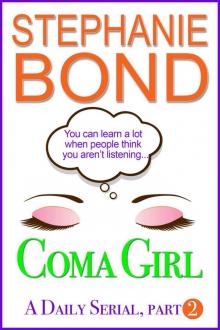 Coma Girl: part 2
Coma Girl: part 2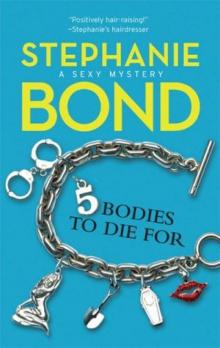 5 Bodies to Die For
5 Bodies to Die For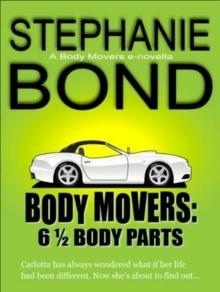 6 1/2 Body Parts
6 1/2 Body Parts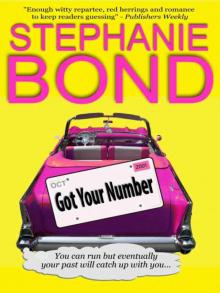 Got Your Number ((a humorous romantic mystery))
Got Your Number ((a humorous romantic mystery)) Baby, Hold On
Baby, Hold On I Think I Love You
I Think I Love You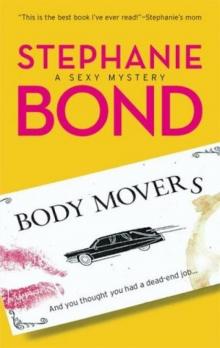 Body Movers
Body Movers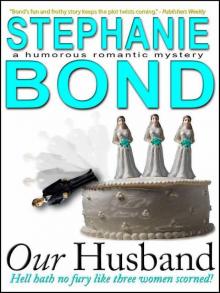 Our Husband
Our Husband Once Upon a Valentine
Once Upon a Valentine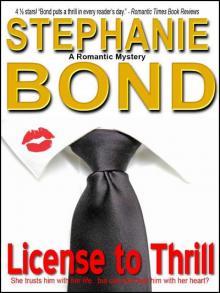 License to Thrill (a romantic mystery)
License to Thrill (a romantic mystery)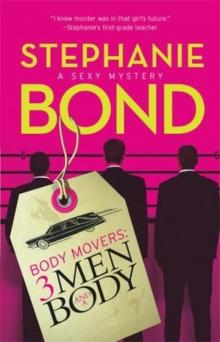 3 Men and a Body
3 Men and a Body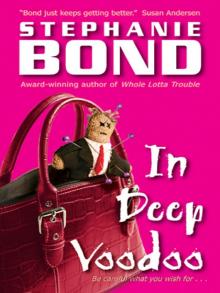 In Deep Voodoo
In Deep Voodoo Entice Me Box Set: The Truth About Shoes and MenCover MeMy Favorite Mistake
Entice Me Box Set: The Truth About Shoes and MenCover MeMy Favorite Mistake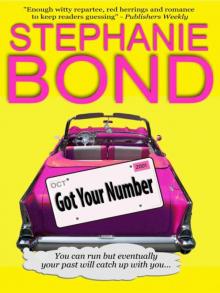 Got Your Number
Got Your Number Baby, Don't Go
Baby, Don't Go Sand, Sun...Seduction!
Sand, Sun...Seduction!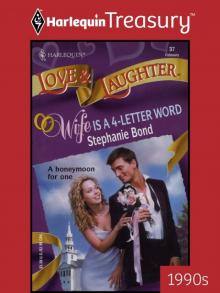 Wife Is A 4-Letter Word
Wife Is A 4-Letter Word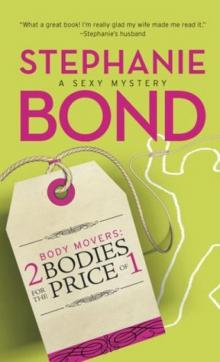 2 Bodies for the Price of 1
2 Bodies for the Price of 1 Baby, Drive South
Baby, Drive South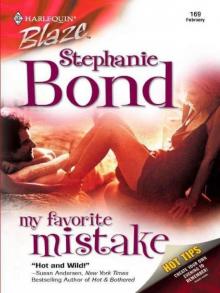 My Favorite Mistake
My Favorite Mistake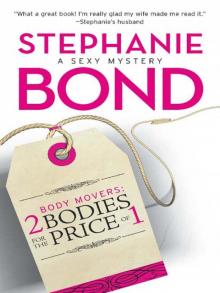 Body Movers: 2 Bodies for the Price of 1
Body Movers: 2 Bodies for the Price of 1 Coma Girl: part 1
Coma Girl: part 1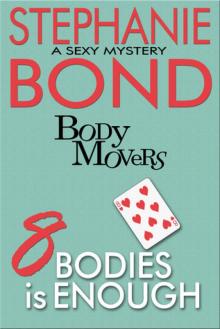 8 Bodies Is Enough
8 Bodies Is Enough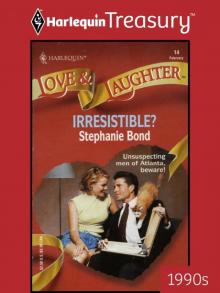 Irresistible?
Irresistible? Too hot to sleep
Too hot to sleep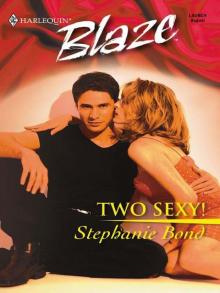 Two Sexy!
Two Sexy!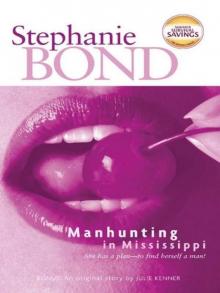 Manhunting in Mississippi
Manhunting in Mississippi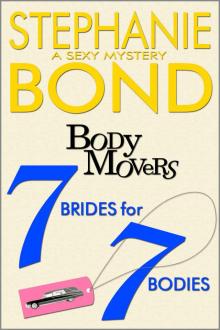 7 Brides for 7 Bodies
7 Brides for 7 Bodies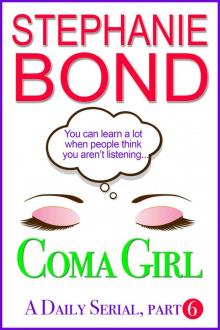 Coma Girl: Part 6 (Kindle Single)
Coma Girl: Part 6 (Kindle Single)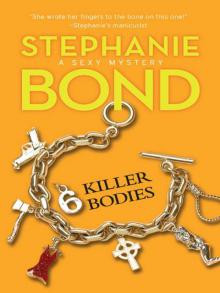 6 Killer Bodies
6 Killer Bodies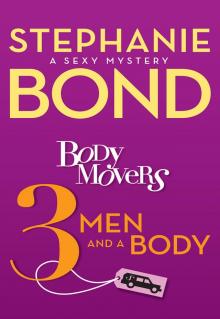 Body Movers: 3 Men and a Body
Body Movers: 3 Men and a Body Seeking Single Male
Seeking Single Male Love So Tender: Taking Care of BusinessPlay It Again, ElvisGood Luck Charm
Love So Tender: Taking Care of BusinessPlay It Again, ElvisGood Luck Charm Love Can Be Murder (boxed set of humorous mysteries)
Love Can Be Murder (boxed set of humorous mysteries)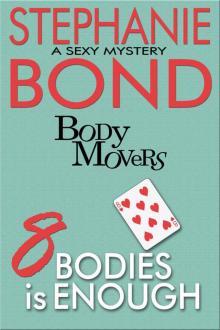 8 Bodies is Enough--for Amazon
8 Bodies is Enough--for Amazon Her Sexy Valentine
Her Sexy Valentine Baby, I'm Back (a Southern Roads short story)
Baby, I'm Back (a Southern Roads short story) Stop the Wedding!
Stop the Wedding! Too Hot to Print
Too Hot to Print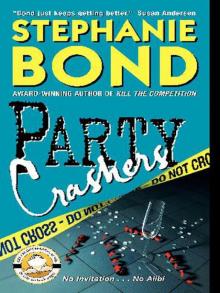 Party Crashers
Party Crashers Club Cupid
Club Cupid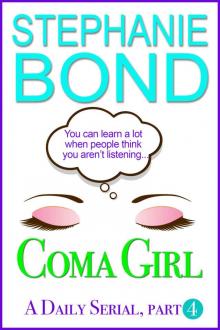 Coma Girl: Part 4 (Kindle Single)
Coma Girl: Part 4 (Kindle Single)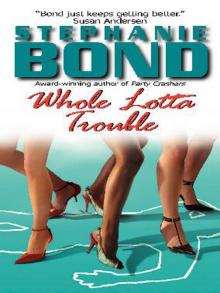 Whole Lotta Trouble
Whole Lotta Trouble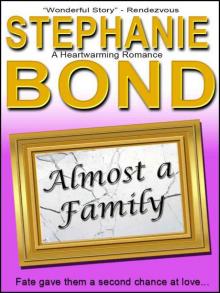 Almost a Family
Almost a Family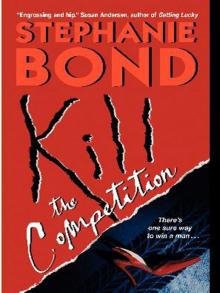 Kill the Competition
Kill the Competition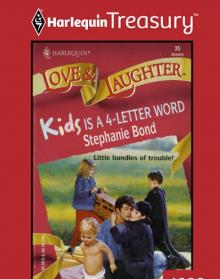 Kids Is A 4-Letter Word
Kids Is A 4-Letter Word Baby, Come Home
Baby, Come Home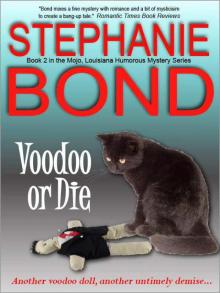 Voodoo or Die
Voodoo or Die Baby, I’m Yours
Baby, I’m Yours Mad About You (boxed set of beloved romances)
Mad About You (boxed set of beloved romances)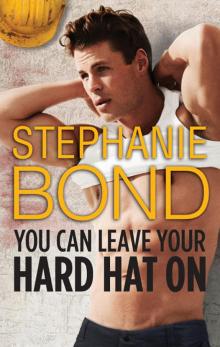 You Can Leave Your Hard Hat On
You Can Leave Your Hard Hat On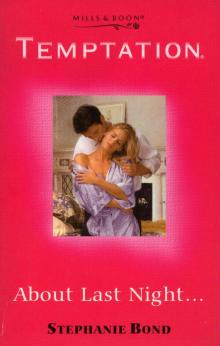 ABOUT LAST NIGHT
ABOUT LAST NIGHT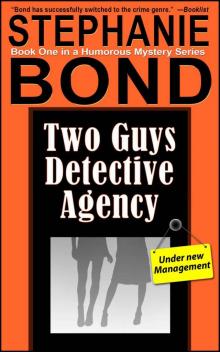 Two Guys Detective Agency (humorous mystery series--book 1)
Two Guys Detective Agency (humorous mystery series--book 1)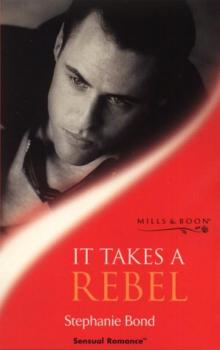 IT TAKES A REBEL
IT TAKES A REBEL Coma Girl: part 3 (Kindle Single)
Coma Girl: part 3 (Kindle Single)